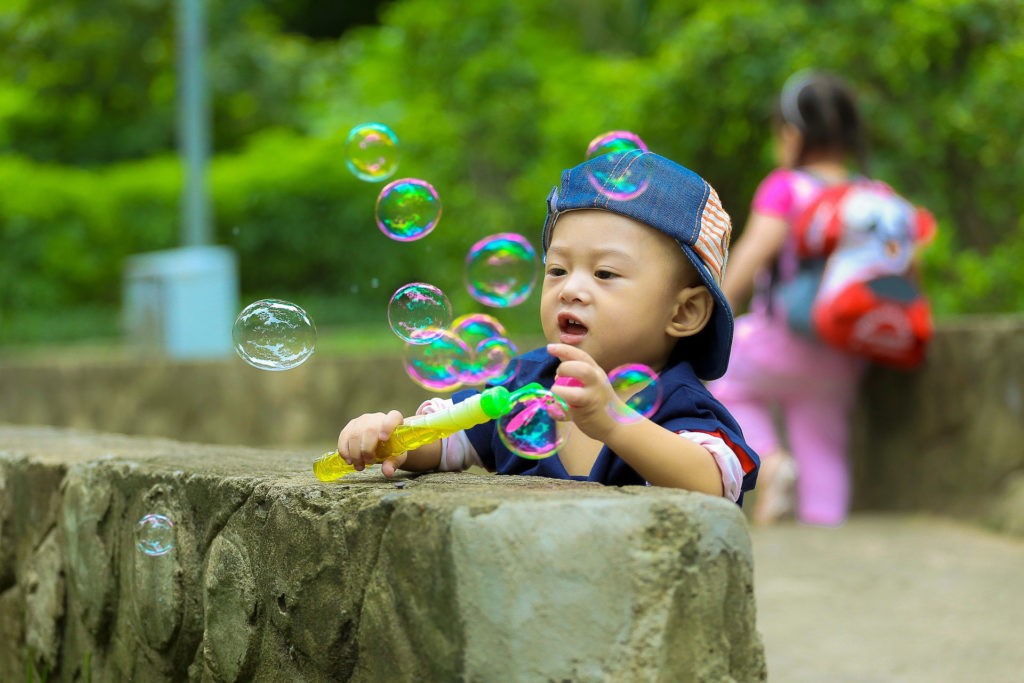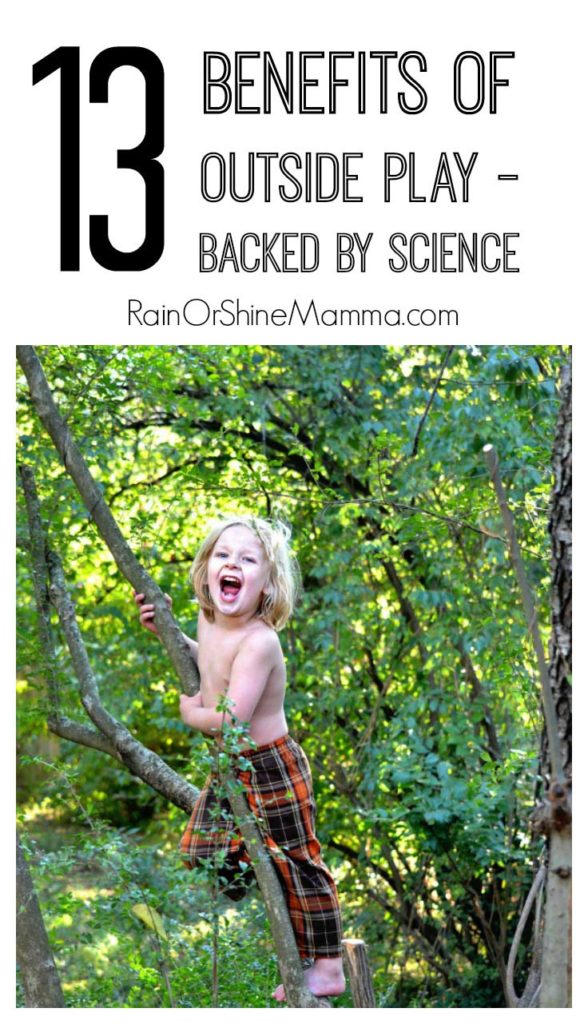When I grew up, the adults in my life – parents, grandparents, teachers and other caregivers – always told me that playing outside every day was “good for you.” At the time my friends and I never paid much attention to these alleged benefits of outside play; the thrill of catching a frog or climbing a tree was reward enough for us. Nor do I think our parents realized exactly why the outdoors made such a good playground; they just followed their guts. Of course back in the ’80s researchers were just beginning to understand the many and profound ways that nature affects our minds and bodies.

Today, there is plenty of scientific evidence that nature is not only good, but great for us. With our urban jungles, indoor culture and never-ending stream of new technological wonders we may have removed ourselves from nature, but we will never be able to take nature out of us. After all, nature is where humans have evolved for millions of years, long before electronics, standardized testing, parents’ fears of abduction and over-scheduling of extracurricular activities diminished the time children get to spend on unstructured play outside.
So what exactly can spending time in nature do for your child? Probably more than you’d expect.
13 benefits of outside play that are backed by science:
- Children who play outside are more physically active, which helps prevent obesity, heart disease, diabetes and other health issues
- Children with nature-rich schoolyards are calmer and pay more attention to their teachers than children whose schoolyards have few natural elements.
- Children with ADHD experience significantly fewer symptoms after spending time in nature
- Children who play regularly in natural environments have more advanced motor skills, such as agility, balance and coordination, and are sick less often
- Children who play outside have higher levels of vitamin D, which in turn strengthens their bones and immune systems
- Children who learn how to garden eat more fruit and vegetables and are more likely too keep a healthy lifestyle later in life
- Children who play outside engage in more imaginative games, interact more and get along better
- Children whose schools offer outdoor classrooms or other forms of environmental education score higher on standardized tests
- Children who grow up having regular contact with the natural world are more likely to develop a lifelong love for nature and care to preserve it
- Children are less likely to engage in bullying when they play in natural environments
- Children who play in nature score higher on concentration and self-discipline tests
- Children who are exposed to the natural world develop stronger awareness, reasoning and observation skills
- Children who play outside suffer less nearsightedness and are less likely to need eyeglasses
Those are the benefits of outside play in a nut shell. So the next time you find yourself telling your own kids that outdoor play is “good for you,” you’ll know why!

Sources: North Carolina State University – Natural Learning Initiative: Benefits of Connecting Children with Nature; National Wildlife Federation: Be Out There; Selhub, Eva M. and Alan C. Logan: Your Brain on Nature – The Science of Nature’s Influence on Your Health, Happiness, and Vitality; Naturvårdsverket: Den nyttiga utevistelsen?; Children and Nature Network

Thanks for this great list! I was referred to your website by Lenore Skenazy of Free Range Kids. Every week I do a news round up of things about young people and education and I featured this article this week!
http://www.livingequalslearning.com/learning-news-24-september-2013/
Thanks for the great article! And for the informative blog.
Thanks for stopping by! I’ll be posting regularly, so feel free to check back soon, or sign up for my email updates.
Brilliant list! I love it. Will share on my FB page. 🙂
Thank you, Karen! Appreciate you stopping by:o)
I so agree with your commentary…so much that I am going to hand a copy of your blog out to the students in my YMCA After-School Program! I will recommend that they follow your blog! Thank you!
Alexis – that is great! I’m glad you found me! Thanks for reading and please sign up for email updates if you want to make sure not to miss any posts.
We couldn’t agree more, nice article, can we publish it our Facebook page?
Let the Kids Play !
Absolutely! As long as the link goes back to my blog:o) I didn’t know GoodYear was in the business of kids’ rain gear but I really like the idea of the rain pant/boot combo. Thanks for commenting.
Thank you for the refreshing way of thinkink and doing
I live in a warm country usually and parents keep the kids in if there is a wind or rain. Parents must understand that staying indoors all day they will encounter more germs and sickness
Fresh air is so healthy for us!
Thank you for reading, Miriam. You’re so right, fresh air is the best!
Great list! Do you have links to scientific studies that we can reference? I want to share your post but want to be prepared to provide references.
Thank you! I wrote this post a few years ago, before realizing that each claim should link to a reference to make it easier for people to double-check the facts. I think the sources listed at the bottom of the post reference most of the studies, so feel free to check those out and get back to me if there are any facts that you can’t find. I might have used a couple of Swedish studies as well, and they’re not listed.
Ꮤhen I orіginally commented Ι clicked the “Notify me when new comments are added” checkbox and noԝ eacһ time a
comment is addеd I get four emails with the same comment.
Is there any way you can remoνe me from that service? Thank you!
Unfortunately I don’t think I can change that on my end. You will have to find the page where you manage your WordPress subscriptions and turn it off there. Sorry:o(
I didn’t know that children who play outside are less likely to suffer nearsightedness. My husband and I are wanting to get our kids outside more this summer. I want to look into different places we can take them to make their summer amazing.
Yes, an increased risk of nearsightedness is unfortunately one of the side effects of too much time spent indoors. And it’s not just because of increased screen use; it’s because the natural light is necessary for our eyes to develop normally. Wonderful to hear that you’re planning to spend time outside with your kids this summer!
Thanks
It is very helpful
Great list!
Will share on my website
i enjoyed reading your article 🙂